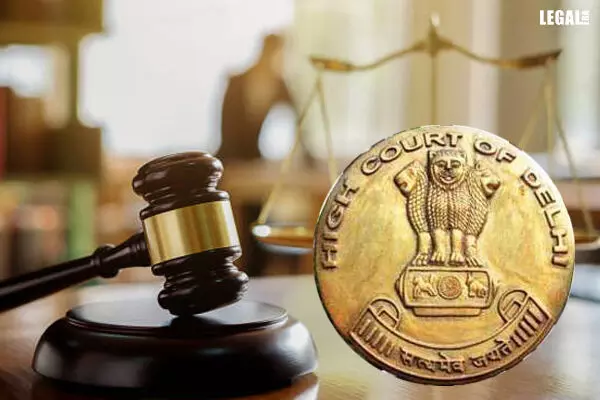- Home
- News
- Articles+
- Aerospace
- Artificial Intelligence
- Agriculture
- Alternate Dispute Resolution
- Arbitration & Mediation
- Banking and Finance
- Bankruptcy
- Book Review
- Bribery & Corruption
- Commercial Litigation
- Competition Law
- Conference Reports
- Consumer Products
- Contract
- Corporate Governance
- Corporate Law
- Covid-19
- Cryptocurrency
- Cybersecurity
- Data Protection
- Defence
- Digital Economy
- E-commerce
- Employment Law
- Energy and Natural Resources
- Entertainment and Sports Law
- Environmental Law
- Environmental, Social, and Governance
- Foreign Direct Investment
- Food and Beverage
- Gaming
- Health Care
- IBC Diaries
- In Focus
- Inclusion & Diversity
- Insurance Law
- Intellectual Property
- International Law
- IP & Tech Era
- Know the Law
- Labour Laws
- Law & Policy and Regulation
- Litigation
- Litigation Funding
- Manufacturing
- Mergers & Acquisitions
- NFTs
- Privacy
- Private Equity
- Project Finance
- Real Estate
- Risk and Compliance
- Student Corner
- Take On Board
- Tax
- Technology Media and Telecom
- Tributes
- Viewpoint
- Zoom In
- Law Firms
- In-House
- Rankings
- E-Magazine
- Legal Era TV
- Events
- Middle East
- Africa
- News
- Articles
- Aerospace
- Artificial Intelligence
- Agriculture
- Alternate Dispute Resolution
- Arbitration & Mediation
- Banking and Finance
- Bankruptcy
- Book Review
- Bribery & Corruption
- Commercial Litigation
- Competition Law
- Conference Reports
- Consumer Products
- Contract
- Corporate Governance
- Corporate Law
- Covid-19
- Cryptocurrency
- Cybersecurity
- Data Protection
- Defence
- Digital Economy
- E-commerce
- Employment Law
- Energy and Natural Resources
- Entertainment and Sports Law
- Environmental Law
- Environmental, Social, and Governance
- Foreign Direct Investment
- Food and Beverage
- Gaming
- Health Care
- IBC Diaries
- In Focus
- Inclusion & Diversity
- Insurance Law
- Intellectual Property
- International Law
- IP & Tech Era
- Know the Law
- Labour Laws
- Law & Policy and Regulation
- Litigation
- Litigation Funding
- Manufacturing
- Mergers & Acquisitions
- NFTs
- Privacy
- Private Equity
- Project Finance
- Real Estate
- Risk and Compliance
- Student Corner
- Take On Board
- Tax
- Technology Media and Telecom
- Tributes
- Viewpoint
- Zoom In
- Law Firms
- In-House
- Rankings
- E-Magazine
- Legal Era TV
- Events
- Middle East
- Africa
Delhi High Court Quashes Show Cause Notice That Lacked Reasons for Retrospective Cancellation of GST Registration

Delhi High Court Quashes Show Cause Notice That Lacked Reasons for Retrospective Cancellation of GST Registration
The Delhi High Court has quashed a show cause notice due to its deficiency in providing reasons for the retrospective cancellation of GST registration.
Justices Sanjeev Sachdeva and Ravinder Dudeja observed that the show cause notice and subsequent order lacked reasoning regarding the retrospective cancellation of GST registration. Furthermore, the petitioner was not informed that their registration could be cancelled retrospectively.
The petitioner/assessee contested the order that retroactively annulled the petitioner's GST registration.
The petitioner received a show cause notice dated September 15, 2023, prompting him to explain why the registration should not be cancelled. Subsequently, an order dated January 15, 2024, was issued, retroactively cancelling the petitioner's registration as of December 3, 2021.
The petitioner argued that they had submitted a manual response along with the necessary documents, including the registered rent agreement, proof of ownership, and the amendment to the registered address made by the Registrar of Companies, to the appropriate officer.
Under Section 29(2), the proper officer holds the authority to cancel a person's GST registration from a chosen date, which may include a retrospective date, provided the conditions specified in the subsection are met. However, the cancellation of registration with retrospective effect cannot be done mechanically; it must be based on the discretion of the proper officer. This decision cannot be subjective but must rely on objective criteria. Non-filing of returns for a certain period does not automatically warrant the retrospective cancellation of registration, especially if the taxpayer had previously filed returns and remained compliant during that period.
The court observed that both the Show Cause Notice dated September 15, 2023, and the challenged order dated January 15, 2024, fail to provide any specifics regarding the purported invoices or bills issued by the petitioner without a corresponding supply of goods or services. In the absence of such details in the notice and the order, they cannot be deemed valid or upheld.
The court emphasized that canceling a taxpayer's registration retrospectively carries significant consequences, particularly affecting the input tax credit availed by the taxpayer's customers for supplies made during that period. Therefore, retrospective cancellation should only occur when such consequences are justified and intended.



